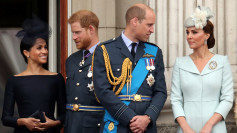Ukrainian President Volodymyr Zelensky revealed that North Korean troops could be involved in battles within days, escalating the scope of the conflict. Zelensky's remarks came during an interview with South Korea's national broadcaster, Korean Broadcasting System, where he expressed concern over North Korean troops reportedly stationed in Russia's Kursk region. "So far, North Korean troops have not participated in battles," Zelensky stated. "They are preparing to participate in battles [in Kursk]."
The presence of North Korean soldiers, estimated to be around 10,000, has heightened tensions and drawn criticism from Western leaders who see North Korea's involvement as an alarming extension of the conflict's international dimensions. "A significant escalation" is how NATO Secretary-General Mark Rutte described North Korea's participation, emphasizing the "dangerous expansion of Russia's war."
U.S. Department of Defense spokesperson Maj. Gen. Pat Ryder confirmed a "relatively small number" of North Korean soldiers are now in Kursk, with thousands more anticipated to arrive soon. According to Ukrainian and South Korean intelligence, approximately 3,000 North Korean troops are currently near the front lines, with estimates suggesting this number could increase to 12,000 in the coming days.
As both sides brace for what could be an unprecedented clash between Ukrainian forces and North Korean soldiers, the United States has responded with cautious support. President Joe Biden, when asked if he approved of Ukraine's engagement with North Korean forces, remarked, "If they cross into Ukraine, yes." Ryder also clarified that Ukraine has the right to employ U.S.-supplied weaponry to defend against "threats that are either emanating from across the border or from inside Ukrainian territory."
Despite the increased firepower, experts are divided on whether North Korea's forces will have a meaningful impact on the battlefield. "North Korea could provide Russia with up to 20,000 soldiers of varying skills," said Olena Guseinova, a researcher with the Friedrich Naumann Foundation, in a recent study. "However, North Korean assistance is unlikely to alter the war's overall course," she added, citing political and logistical challenges, including desertion risks and the need for Russian security personnel to monitor North Korean troops closely.
These troops are reportedly drawn from specialized units, though North Korea's military has not seen active combat for over 70 years. The deployment appears to serve a dual purpose: supporting Russian forces and gaining combat experience to bolster Pyongyang's military readiness. Nevertheless, the scale of Russia's personnel losses remains staggering. Ukrainian commanders estimate that Russia has suffered over 10,500 casualties in just the last week, and the Kursk region alone has seen 17,800 casualties in three months, per Ukrainian military sources.
Zelensky has already briefed South Korean President Yoon Suk Yeol on the presence of North Korean troops. South Korea has been cautiously monitoring the situation, initially suggesting it might consider supplying Ukraine with military aid as a counter-response to North Korea's involvement. However, South Korean officials clarified this week that they would not be sending 155mm shells to Ukraine, backing away from prior remarks suggesting "offensive use" support if the North "goes too far."
Instead, South Korea plans to dispatch an intelligence delegation to observe the effectiveness of North Korean troops, reflecting a cautious approach shared by some of Russia's allies. The Kazan Declaration, signed by China, India, and other BRICS nations, reiterated a commitment to a peaceful resolution of international disputes per the U.N. Charter, signaling limited support for Russia's expanded military alliance.
Adding to the complexity, Belarusian President Alexander Lukashenko voiced opposition to foreign military involvement in the region. "Even if we got involved in the war, this would be a path to escalation," Lukashenko told the BBC, stressing that the entry of more foreign forces could prompt NATO intervention.
Despite North Korea's support, Russia's gains in Ukraine have been limited in recent months. The Institute for the Study of War (ISW), a Washington-based think tank, reports that Russian territorial advances averaged 14 square kilometers daily in September-just a fraction of the initial gains from the 2022 invasion. ISW noted that the early months of the war were characterized by rapid Russian advances into Ukrainian territories, while recent movements have slowed to "small-scale, localized, tactical advances."
Meanwhile, Ukraine has doubled down on efforts to boost its own defense industry, producing a range of new military assets to address supply shortfalls. Zelensky emphasized the importance of industrial investment at the recent Ukraine-Nordic countries summit, encouraging allies to produce defense essentials domestically, including microchips and other sensitive technology. "Europe needs industrial strength and independence," he told leaders, referring to Western restrictions on long-range U.S. weapons that could strike Russian airfields.
Ukraine's domestic arms manufacturing has shown notable progress. Its Ministry of Defense announced that it issued contracts for 1.6 million drones in the first ten months of 2024, with nearly 1.3 million already delivered. Ukrainian forces have used drones as a substitute for artillery shells to achieve precision strikes on Russian targets, particularly in areas where North Korea's Gerbera drones and Iranian-designed Shahed drones have been active.
Ukrainian armed forces are also expected to receive new armored fighting vehicles from Rheinmetall, a German defense contractor. The company's CEO, Armin Papperger, confirmed that production of Lynx fighting vehicles at a Ukrainian factory will begin by the end of the year. Rheinmetall is also building facilities to produce ammunition, gunpowder, and air defense systems in Ukraine, a significant investment aimed at sustaining Ukraine's long-term defensive capabilities.






